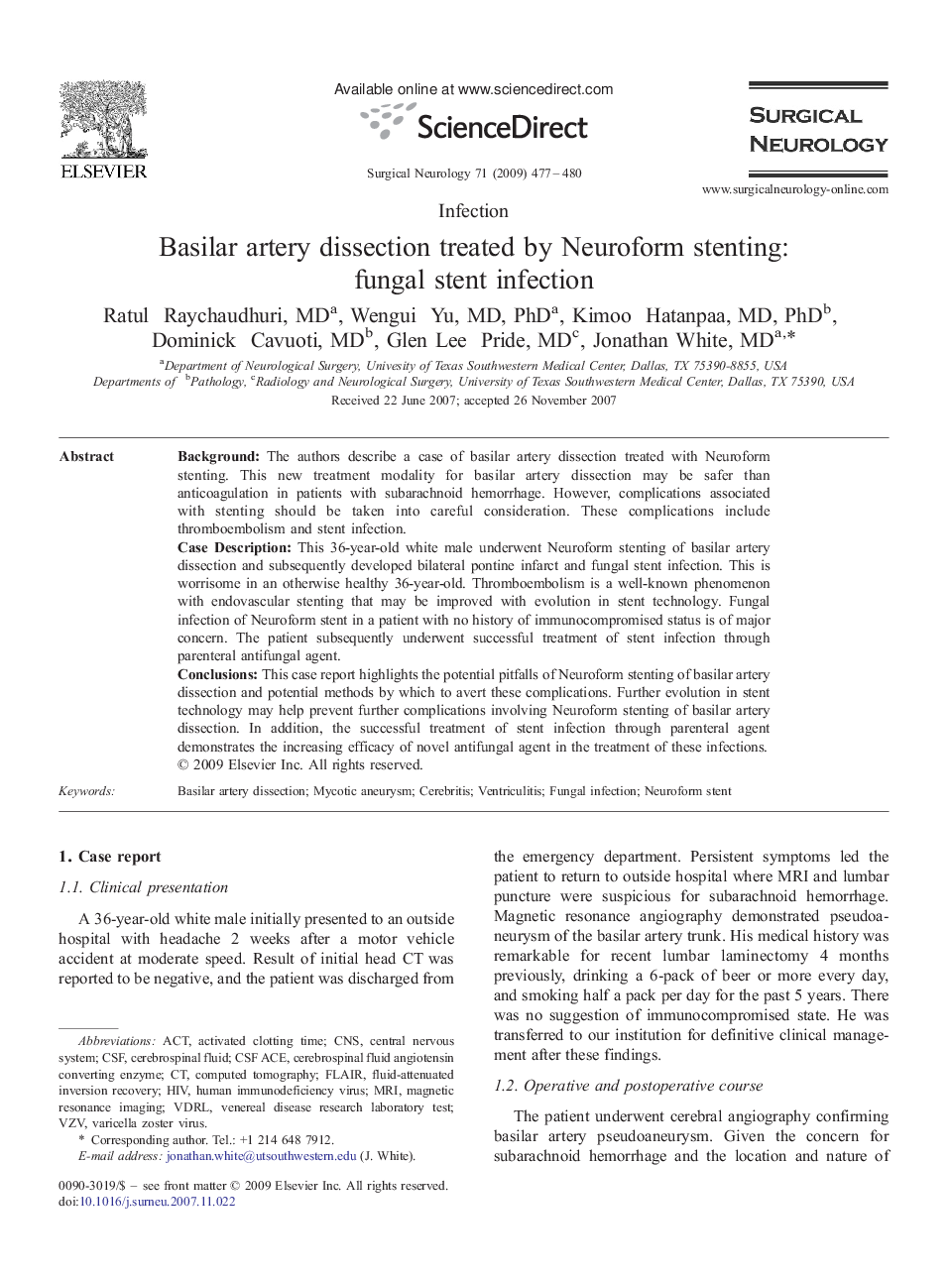| Article ID | Journal | Published Year | Pages | File Type |
|---|---|---|---|---|
| 3092574 | Surgical Neurology | 2009 | 4 Pages |
BackgroundThe authors describe a case of basilar artery dissection treated with Neuroform stenting. This new treatment modality for basilar artery dissection may be safer than anticoagulation in patients with subarachnoid hemorrhage. However, complications associated with stenting should be taken into careful consideration. These complications include thromboembolism and stent infection.Case DescriptionThis 36-year-old white male underwent Neuroform stenting of basilar artery dissection and subsequently developed bilateral pontine infarct and fungal stent infection. This is worrisome in an otherwise healthy 36-year-old. Thromboembolism is a well-known phenomenon with endovascular stenting that may be improved with evolution in stent technology. Fungal infection of Neuroform stent in a patient with no history of immunocompromised status is of major concern. The patient subsequently underwent successful treatment of stent infection through parenteral antifungal agent.ConclusionsThis case report highlights the potential pitfalls of Neuroform stenting of basilar artery dissection and potential methods by which to avert these complications. Further evolution in stent technology may help prevent further complications involving Neuroform stenting of basilar artery dissection. In addition, the successful treatment of stent infection through parenteral agent demonstrates the increasing efficacy of novel antifungal agent in the treatment of these infections.
